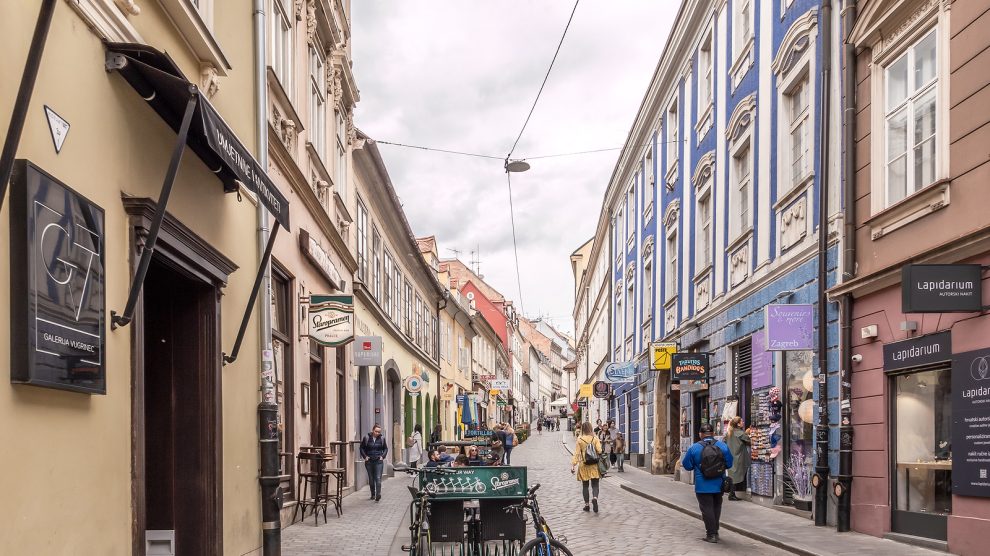The latest member of both the eurozone and the Schengen area, further reform could see Croatia close the income gap with the EU27 average in just a decade and a half.
Attaining higher living standard for citizens, speeding up convergence with average European Union income levels, and doubling long-term growth per capita are well within Croatia’s reach, according to a new World Bank report, Laying the Foundations: Boosting Productivity to Ensure Future Prosperity in Croatia.
This can be delivered by deepening reforms with a focus on improving the productivity of the overall economy, strengthening the quality of education, and increasing labour market participation, according to the report, which looks at long-term growth prospects of the Croatian economy.
- Why Poland is key to improving Central and Eastern Europe’s railway connections
- The 3SI: Europe’s most critical regional cooperation initiative must succeed
- How football helped define modern Croatia
The report argues that the key elements for boosting productivity are strengthening institutions, reducing market inefficiencies, and upgrading firms’ performance.
It goes on to suggest that an ambitious reform scenario could double income per capita growth to three per cent on average by 2050. This would enable Croatia to close the income gap with the EU27 average in just a decade and a half.
“The role of the government is to design and implement policies that set the preconditions for raising productivity. This government has shown its commitment towards transformational processes, and we remain committed to further strengthening our economic and social environment,” says Marko Primorac, Croatia’s Minister of Finance.
“Our National Recovery and Resilience Plan represents an important tool for raising the long-term productivity and growth of the Croatian economy, addressing the necessary improvements in the business environment, education, science, research and innovation as well as strengthening of our institutions.”
Euro, Schengen
Over the last two turbulent decades Croatia has joined the EU, improved its policy and institutional framework, and achieved macroeconomic and financial stability.
As a step towards full EU integration, on January 1, 2023, the country entered the eurozone and the Schengen area which, along with access to abundant EU funds, will further strengthen Croatia’s resilience and trade integration. This creates an environment where the returns on further reforms can be much higher.
“Many of the reforms critical for growth are already envisioned in Croatia, and once implemented, will provide a major boost to the country’s growth potential,” says Gallina Vincelette, regional director for the European Union at the World Bank.
“Croatia can further accelerate its path to higher prosperity by staying the course of its reform program in areas that will increase productivity, including through digitalisation and research and development, improving educational outcomes, strengthening institutions for firm entry and trade while fostering more competition. Increased attention to the green transition also provides an excellent opportunity to decouple economic growth from environmental degradation and put the country on a more sustainable path.”

Investment in ICT
Improvements in productivity in the manufacturing and ICT sectors could also bring large benefits. While Croatia performs well in several low-skill tradable services such as accommodation and restaurants, achieving similar outcomes in manufacturing and knowledge-intensive service industries such as ICT can fuel the country’s high export potential.
In the EU’s Digital Economy and Society Index (DESI), Croatia ranks just 19th out of the 27 member states. In Emerging Europe’s IT Competitiveness Index for 2022, Croatia ranked an equally mediocre 13th of the 23 countries in the region, behind neighbours Serbia and Slovenia.
“Education, talent, and entrepreneurship are the country’s strengths but in order to catch up with more developed ICT sectors, Croatia will have to ease bureaucratic and tax burdens on corporations,” we wrote. In its new report, the World Bank appears to share our concerns, suggesting that the role of institutions and policy makers is important for promoting competition and boosting the dynamism of the Croatian business environment.
It says that measures to reduce barriers to entry, regulatory burdens on firms, and privileges that protect firms from fair competition, together with improved enforcement of antitrust regulations can help to unleash growth of the private sector.
In addition, improving the absorption and impact of EU funds, investing in research and development and technology and in a skilled workforce, are all critical to spurring productivity and speeding up convergence with frontier EU countries.
Unlike many news and information platforms, Emerging Europe is free to read, and always will be. There is no paywall here. We are independent, not affiliated with nor representing any political party or business organisation. We want the very best for emerging Europe, nothing more, nothing less. Your support will help us continue to spread the word about this amazing region.
You can contribute here. Thank you.







Add Comment